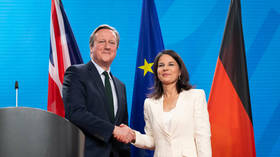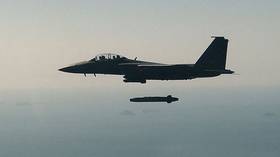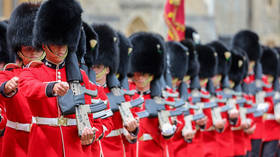UK pressures Germany on long-range missiles for Ukraine

Western nations should enhance their military support to Ukraine and “invest” more in NATO, British Foreign Secretary David Cameron told Germany’s Sueddeutsche Zeitung in an interview published on Friday. London is ready to work with Berlin on “solving the issues” preventing Germany from providing Kiev with its long-range Taurus missiles, he added.
The potential supply of the German-made cruise missiles, which have a range of about 500 kilometers (300 miles), to Ukraine has drawn additional attention recently amid fallout from a leaked recording of top German military officials discussing the use of those weapons to destroy Russia’s Crimean Bridge. In the audio recording and a transcript of the conversation published by RT, senior German military officers, including the nation’s Air Force commander, in particular spoke about maintaining plausible deniability in case of such an attack.
The leak prompted former Russian president Dmitry Medvedev to accuse Germany of preparing for a conflict with Russia, which Berlin has denied.
Chancellor Olaf Scholz has been skeptical of the idea of sending Taurus missiles to Ukraine. He argued that the use of such weapons would require tighter control from Berlin and the presence of German specialists on the ground. Scholz also maintained that he would not allow the nation’s troops to become directly involved in the Ukraine conflict.
“We are determined to work closely with our German partners on this issue as well as on all the other ones to help Ukraine,” Cameron told Sueddeutsche Zeitung when asked whether London could aid Berlin in “solving the problems preventing a Taurus delivery” to Kiev.
When further pressed on potential solution scenarios, including a supply of more British Storm Shadow missiles to Ukraine in exchange for Taurus deliveries to the UK, Cameron said that “we are ready to look at all options to achieve the maximum effect for Ukraine.” He refused to provide any further details on the issue.
The foreign secretary said that London would not encourage Berlin to send its missiles to Kiev, adding that “every country has to make a sovereign decision here.” He still maintained that the UK was “happy with the arrangements” it made with Kiev, adding that the British weapons are playing a role in improving Ukraine’s fighting capabilities.
Cameron also insisted that the West should still seek to achieve its goals through force rather than seek peace in Ukraine. “The best thing we can do now is to invest in NATO,” he told the German newspaper. Russia’s success in the ongoing conflict would lead to “great uncertainty” in Europe and the rest of the world as well as a crisis of trust within the US-led bloc, he argued.
“If we want to achieve a just peace, we will only achieve this through strength,” Cameron stated, adding that seeking peace is incompatible with aiding Kiev. “If we say [that] we want to support Ukraine but also a peace process, neither of the two things will succeed,” he added.
Moscow has repeatedly said that it was ready for peace talks but has seen no willingness for them either in Kiev, in Washington or among its allies. The West still seeks to inflict a battlefield defeat on Russia, Foreign Minister Sergey Lavrov said last week. Russia’s former defense minister, Sergey Ivanov, in a speech earlier this week also counted the UK among the nations that are “most hostile” to Russia.














